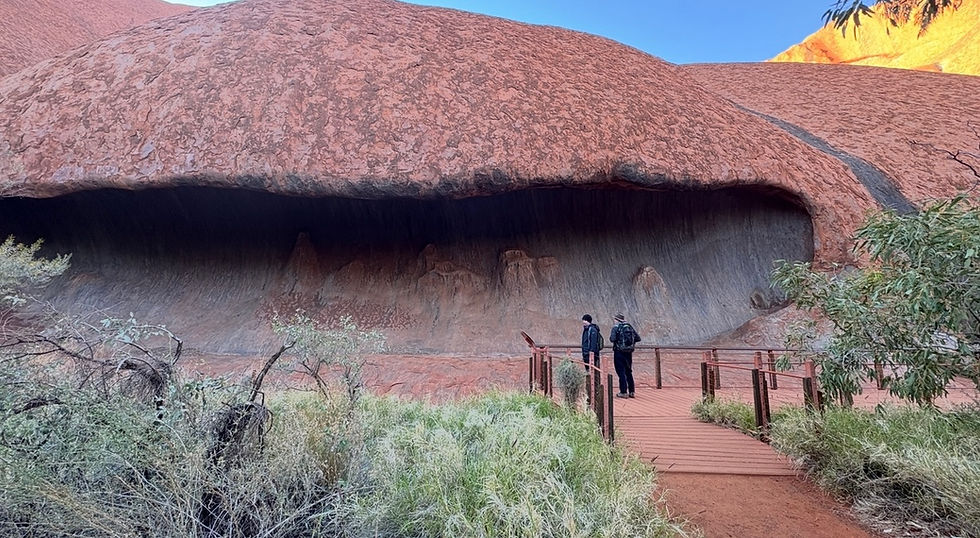Congratulations to the 2025 AASA Learning and Teaching Research Grant Winners!
- Aug 7, 2025
- 2 min read

The Association of Architecture Schools of Australasia (AASA) is proud to announce the recipients of the 2025 AASA Learning and Teaching Research Grant: University of Newcastle for Decolonising the Critique and Ara Institute of Canterbury for Strengthening Indigenous Partnerships in Architectural Education: Embedding Mana Whenua Relationships
In recognition of our ongoing commitment to Indigenous knowledge and pedagogies in architectural education, the AASA has awarded two grants of $5,000 each—one to an Australian institution and one to a New Zealand institution.
This Year’s Submissions
We received nine exceptional proposals—seven from Australia and two from New Zealand. Each reflected a deep engagement with Indigenous perspectives and innovative approaches to architectural education:
Institution | Proposal Title |
University of Sydney (Tara Sydney, Genevieve Murray and Beau Debelle) | Developing an evidence base for best practice at the Cultural Interface |
Unitec (Sameh Shamout) | Wairua of Rangiriri: Designing Narrative-Architecture to Honour Memory and Mana Whenua |
University of Sydney (Rebecca McLaughlan) | Place as Patient? Design Studio |
University of Newcastle (Shellie Smith) | Decolonising the Critique |
UNSW (Samantha Rich) | Architectural Science and Sustainable Architecture in Remote Australia |
Ara Institute of Canterbury (Bernadette Muir) | Strengthening Indigenous Partnerships in Architectural Education |
Swinburne University of Technology (Emily Wright) | Indigenising the Curriculum: Generating Learning and Teaching Resources |
UTS (Urtzi Grau) | Swamp Studio: Reimagining the Architecture of a Catchment |
RMIT (Patrick Macasaet and Vei Tan) | Public Talks + Civic Crits (working title) |
Jury Panel & Deliberation
Our esteemed jurors—Steven Feast (Chair, AASA Learning and Teaching Research Grant), Marni Reti (AASA Indigenous Portfolio Leader and Architect), and Amber Ruckers (Māori Academic, Auckland University of Technology)—engaged in thoughtful deliberation to select the winners.
Winner 1: University of Newcastle
Decolonising the Critique
This proposal stood out for its rigorous and culturally resonant integration of Indigenous knowledge systems into architectural pedagogy. Highlights include:
On-country design studios that reframe architectural education through Indigenous engagement.
Yarning as critique, offering a powerful alternative to conventional review formats.
Reimagining the pin-up through ceremonial and spatial practices, with jurors drawing parallels to the Kava ceremony and fale architecture.
A replicable framework for embedding First Nations ontology and measuring institutional impact.
Winner 2: Ara Institute of Canterbury
Strengthening Indigenous Partnerships in Architectural Education: Embedding Mana Whenua Relationships
This proposal impressed the jury with its innovative use of geospatial technology to deepen place-based cultural engagement. Commendations include:
A scalable platform that builds on a successful pilot, integrating Indigenous knowledge into mapping tools.
Emphasis on relational and community-based processes, including ongoing dialogue with Māori ropū.
A compelling fusion of Te Ao Māori and technology, with suggestions to explore open-source alternatives for cultural sovereignty.
A call for deeper articulation of Te Tiriti o Waitangi as it relates specifically to Ngāti Wheke.
Acknowledging All Applicants
We extend our heartfelt thanks to all applicants for their outstanding contributions. Your work continues to shape the future of architectural education and deepen our collective understanding of Indigenous knowledge systems.



